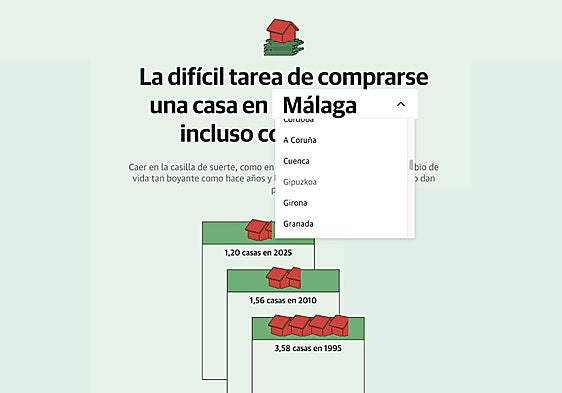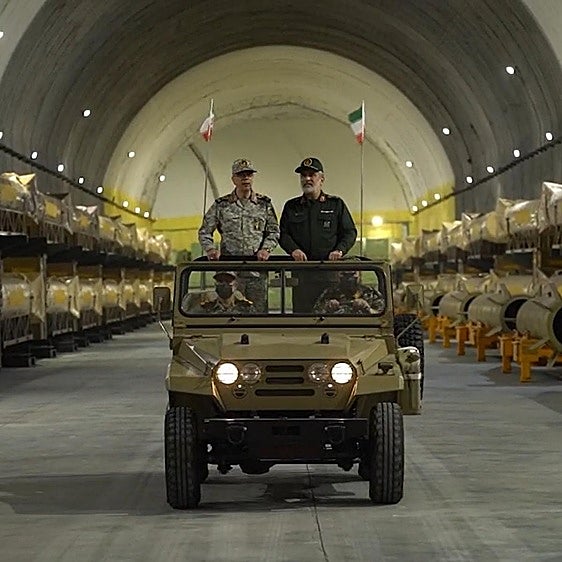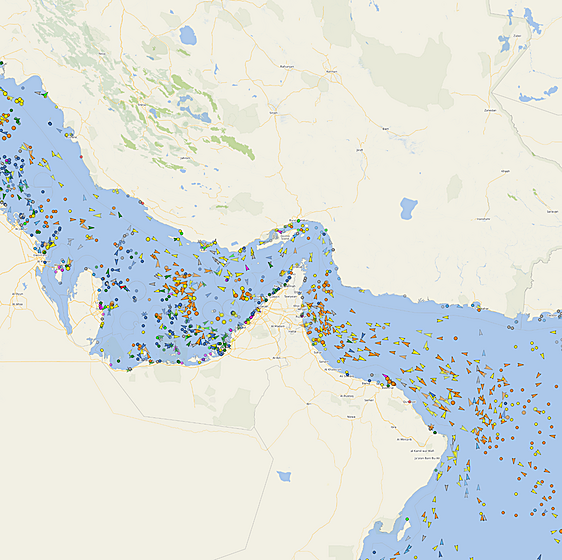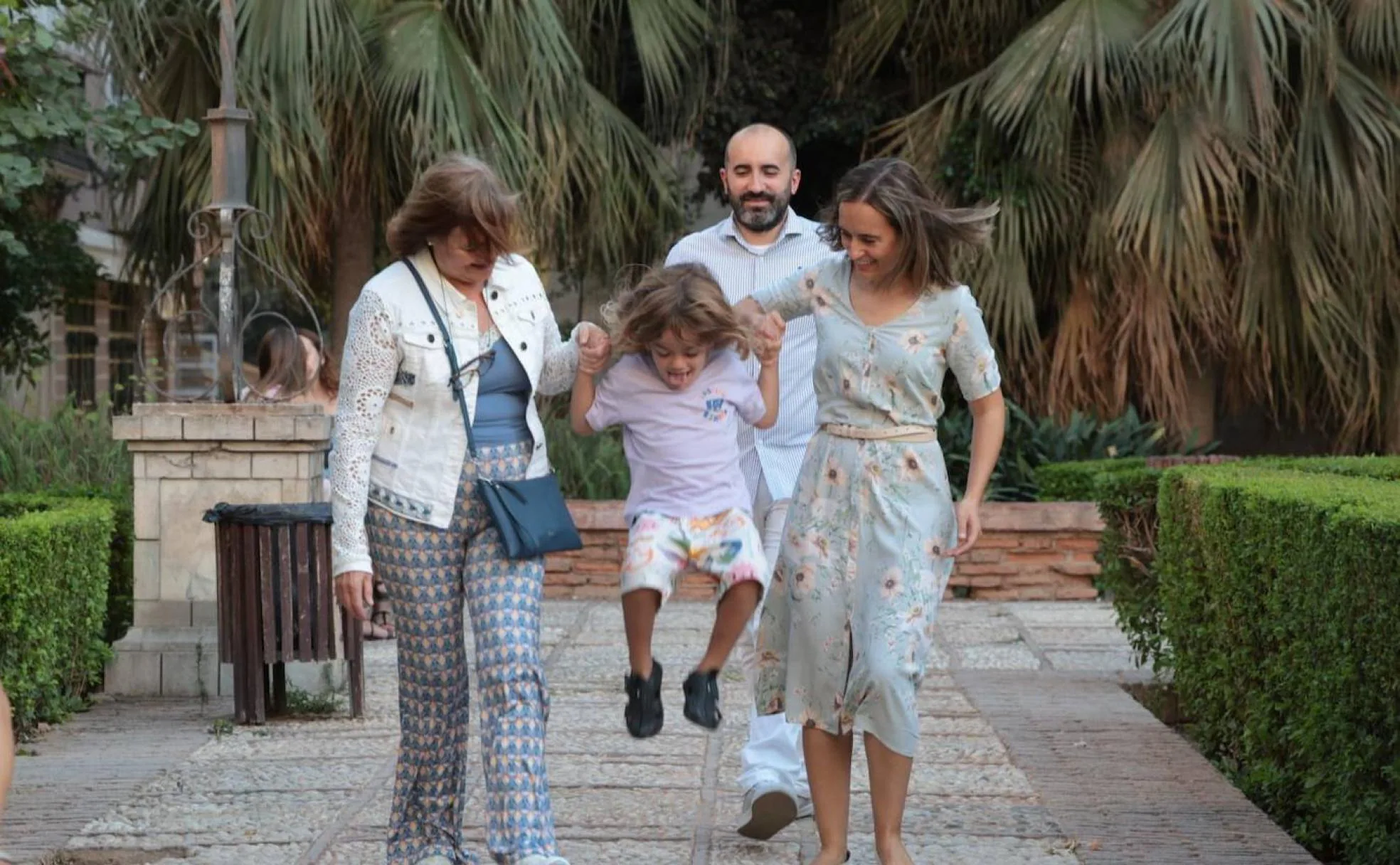Living with Sanfilippo syndrome
Leo's story ·
Leo Hernández was two when diagnosed with this rare, usually fatal disease. An experimental treatment is bringing hope for his familyCristina Pinto
Monday, 10 October 2022, 20:15
Little Leo plays happily in the gardens of the Patio de los Naranjos at the cathedral. His grandmother Mercedes lives in Calle Císter and this is one of his favourite places, one where he loves to run, jump and sing.
That is perfectly normal for a boy who will be celebrating his fifth birthday on 20 October, but for this family that date is almost as important as the one in March 2020 when Leo was diagnosed with Sanfilippo syndrome, a rare degenerative disease whose sufferers rarely survive beyond adolescence.
As he plays with the water in the gardens with his grandmother and his uncle José Antonio, his parents recall what that moment of diagnosis had been like: “You start searching for information, thinking “my God, what on earth is this?” but then we were lucky because Leo has type A and we are taking part in clinical testing. He is number 14 of the 20 children who are having this experimental treatment. Normally when they diagnose this illness they just tell you to go home and love them as much as you can until it’s over. We have the uncertainty of having to see how this goes, but without losing sight of what could happen,” Leo’s mother, Mercedes Carmona, tells us.
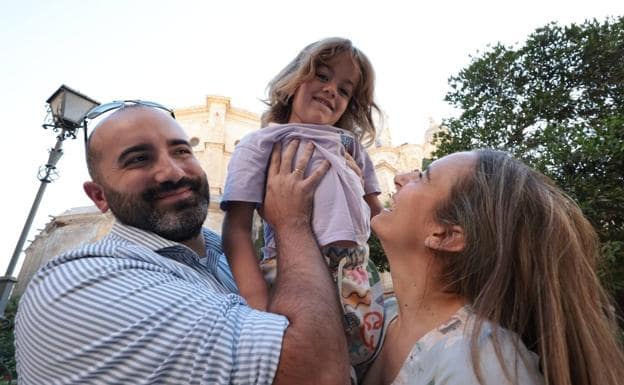
Zoom

Sanfilippo syndrome is an illness caused by a hereditary degenerative mutation and about 70 children in Spain suffer from it at present. It is usually noticed when the child is about a year old and symptoms such as a delay in walking and speaking become evident, although it is from the age of three onwards when they become more pronounced.
“When he started at nursery school he had a lot of ear infections, a large head, very swollen stomach, hair on his back and speech problems, so that’s when I started consulting doctors and pressuring them, and then they diagnosed him with this illness. A lot of people have never heard of it. We want everyone to know it exists, so cases are detected early,” says Leo’s mother, as her son continues to run around and sing with his grandmother and uncle outside the cathedral.
“He’s very mischievous,” his mother says, as she watches him from a distance. It is obvious now that one of the most notable symptoms in this little boy is hyperactivity, as well as impulsiveness and some problems speaking.
“He’s sleeping better now, about 10 hours a day. Some children go for three days with no sleep as well. And he has a bit of a temper, we can see that he is aggressive at times. He has had several ear operations, so it was difficult for him to learn to talk,” Mercedes explains, with her usual smile.
Then his uncle José Antonio, who has obviously been enjoying playing with Leo, tells us about his idea for a benefit concert to raise money for research into Sanfilippo syndrome.
“It occurred to me one day that it would be a good thing to do, and I mentioned it to a friend, Pablo Antúnez, who is the bass player with Sorry Kini. And then one day he rang me and said he had obtained permission and a venue to hold it,” he explains.
That concert took place at the Caja Blanca last Saturday, with Sorry Kini, Rubio Americano and the Alba Bermeja singing school all performing. It was a sell-out.
Two children from Malaga
“We knew there was another little boy with Sanfilippo syndrome here in Malaga, but they couldn’t tell us anything about him because of data protection rules,” Mercedes says. But thanks to this concert, they got to know him. His name is Aray and he is four years old.
“Three days after details of the concert were posted on Instagram, a couple contacted me because their little boy also has the illness,” says José Antonio Carmona.
And so the families got to know each other, thanks to the fundraising concert.
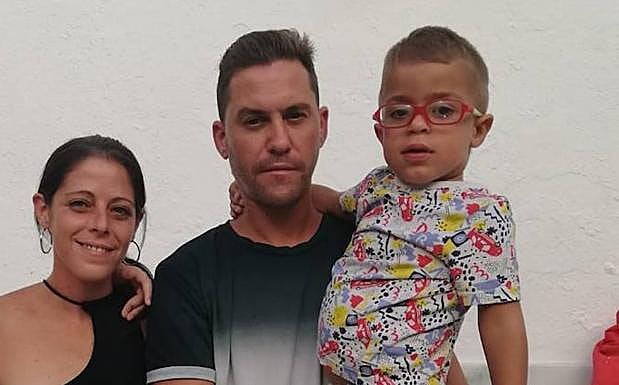
Zoom

The other couple are Antonio Morales and Marina González, and from their home in Coín they told SUR their son’s story:
“Aray was diagnosed more or less at the same time as Leo, but we have only just got to know each other. It’s a relief because normally nobody understands what you’re going through. Mercedes and I talk a lot now and we share things. Thanks to her I have joined a group for children with Sanfilippo here in Spain. This is so very difficult...the lesson of life that I have learned from this child is one that nobody will ever teach me again,” said Marina, emotionally.
This family is also fighting to enable Aray to enjoy life and to live as long as possible.
“He’s like a streak of lightning, he never stops running about. Right now he is well, but when the time comes it is going to be so hard. He has type B of this illness and there is no clinical testing being done for that, so there is no experimental treatment for Aray. And his life expectancy is short. He might not live to be a teenager,” Marina said.
Aray attends a special needs class at his school but Leo is in a normal class at present, “although next year he might need special education,” Mercedes explains.
Speech therapy, occupational therapy, special tutoring and other such activities fill the day of these two little boys and their families, who will never give up fighting. Because Leo and Aray, as they grow and play just like other children, are having the time of their lives.
